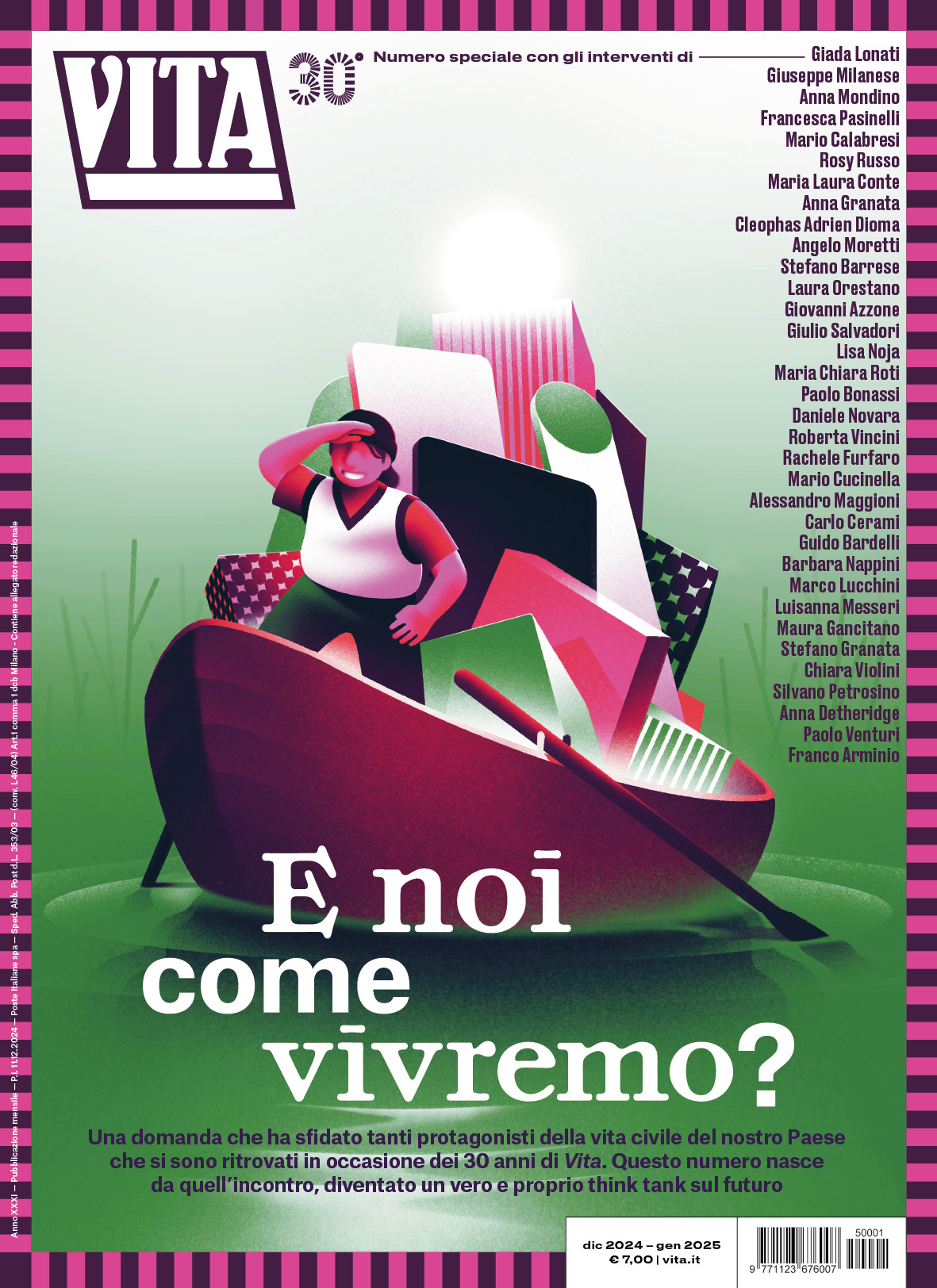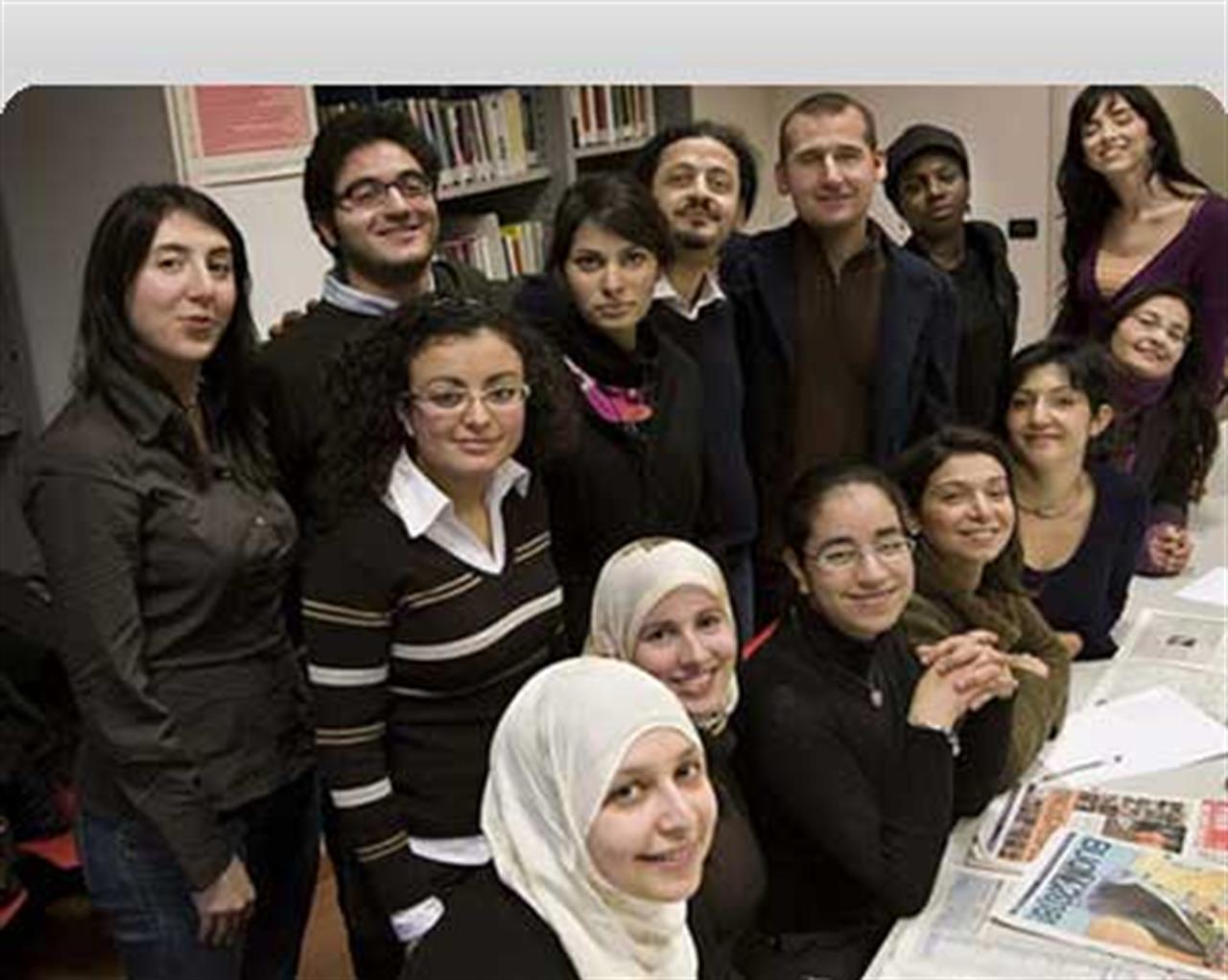To wear or not to wear a burkini? How to best match kaftans with jeans? To eat pork or halal? To pray 5 times a day or to personalise all these precepts? These are some of the questions that a unique group of young journalists have decided to address in an innovative publication that aims to show Italian readers how sons of Arab immigrants have grown and become integral part of their society and can be defined new Italian citizens as well, escaping those definitions that include them in the category of “immigrants”.
Its name? Yalla Italia! Wake up Italy! Because the editorial staff, aged between 20 and 40 is entirely composed of so called “second generation” Arabs living in Italy. Second generation because despite their strong Arab roots a part of them is or has become Italian as well. And if you don’t have any idea of what a burkini is, let Yalla Italia! help you find out.
The story
Yalla Italia! takes its first steps in May 2007 when it was founded by media communication expert Martino Pillitteri and Paolo Branca, a professor of Arab Language and Literature at the University “Cattolica” of Milan. The idea was to create a magazine in which second generation Arabs could express themselves freely and explain to the world how they deal with their plural identities – European, Italian, Arab, Muslim. A space that opens a window to the world of today’s young, European Muslims and that, with humour, irony and a pinch of mischief explains how they face the everyday problems that arise when they try to balance western culture with Islam.
Being a Muslim in a non-Muslim society is not easy. Every day brings with it a choice: whether to eat pork or not, to drink or avoid alcoholic drinks, to fast Ramadan and pray five times a day or to “personalize” these precepts adapting them to the frantic modern life. In a word, it’s an ongoing balance between the sacred and the profane.
Yalla Italia!’s first goal is to fight people’s prejudices against Islam and Muslims. It’s an answer to all those who think that Islam is a monolithic system and Muslims are all the same: sad, dangerous and scary people who never laugh. Which is why its first issue chose irony as its theme. The first issue was on Arab irony and comic in contradictions to the prejudices that were encouraged following the reactions from the Muslim world when, in September 2005, Dutch Jyllands-Posten published satirical comic strips on Prophet Mohamed that spread all over Middle East in the first months of 2006, causing angry reactions and a special Islamic summit between those Arab countries that wanted to reply in a unitary way to the “offensive comics”.
The result? Arabs were painted like people who couldn’t understand humour. The truth, as Yalla Italia! reveals, is much different: Arabs’ humour and their comic tradition is well known throughout the whole of the Middle East – from the Egyptian “Hollywood” cinema industry to the thousands of joke books published every year in Arab comedy is an essential part of Muslim life. Arabs can laugh and make fun of just about everything, from family life to politics. There are only two things they won’t ever laugh at: their mothers and their religion!
To veil or not to veil?
Being a young European Muslim girl is even harder than being a Muslim in a non-Muslim society. Especially when you choose to wear a hijab (veil). Two of Yalla’s girls who have chosen to wear the veil despite all prejudices are quick to highlight that theirs is a free choice – neither 20 year old Lubna Ammoune, who studies Pharmacy at the University of Milan nor 30 year old Sumaya Abdel Qader, a biologist graduating in Cultural Mediation who has just published her first book “Porto il velo, adoro i Queens” ( I wear veil and adore Queen) are oppressed by any man or are forced to wear the veil against their will.
Being a Muslim woman and not wearing the veil may be hard, but not wearing a bikini on the beach is even harder. Rufaida Hamid, 20, and her sister Shabila, 21, are from Kashmir and have reached a fantastic compromise between dressing “Islamically correct” and “Islamically incorrect”: the burkini, a halfway house between a burqa and a bikini!
Mixed marriages
The road gets even rockier when you fall in love with a non-Muslim man and decide to get married anyway, without making him convert to Islam. In this case you must chose to follow your personal aspirations and sacrifice your family’s expectations and face the criticism of family members, friends and the community. Two of the members of Yalla’s staff have felt this experience first hand – Wejdane Majeri, 31, a university professor in Information Technology who married Cesare and Nadra Ben Fadhel, 33, a ballet dancer at Milan’s Opera house, La Scala who chose love over faith to marry Armando. They are truly free and independent Muslim women who firmly believe in multiculturalism, intercultural dialogue and inter-religious marriages. Together with Meriem Dhouib (29), a PHD student in Italian Philology, and Wissal (28), another PHD student in theatrical and cinematic arts, they make up Yalla’s lively Tunisian quartet.
Spaghetti and kebab
How to define these second generation migrants, who are like trees with their roots firmly planted in the south Mediterranean but whose branches are reaching out all Europe? New Italians? From one country to another, from their Arab mother tongues to Italian, English and French, they are used to living in a trans-national and multi-lingual context where pasta and kebab are eaten from the same plate and kaftans are worn to match jeans. Not just “new Italians” as they love to define themselves but, in phrase, citizens of the world.
The faces behind the news
Multiculturality, creativity and a desire for knowledge. These are the three traits that characterise Yalla Italia!’s team, a group of people who truly represent the array of Middle Eastern and European influences intrinsic to the project’s mission. Originally from Lebanon but resident in Italy for over 20 years, Alì Hassoun, 44, is a famous artist and painter who combines Italian Renaissance art with energetic middle eastern colours and subjects. He is a Shiite and his deep spirituality, particularly tied to the Sufi thought finds expression in his work, where his aim is to enable different cultures and religions to communicate.
Akram Idries is 25 and is known as Lenny for his striking resemblance to Lenny Kravitz – together with Rassmea Salah, 25, a graduate student in Arab and Islamic Studies (and who is writing this article) and Randa Ghazi, a 22 year old writer, they make up the Egyptian contingent.
The western Middle East is represented by Morocco with Imane Barmaki, a 24 year old Economics graduate who hopes become an expert in Islamic Finance and two brothers, Hassan Bruneo, a 27 year old engineer and Karim, a 22 year old international banker.
Finally there is the Syrian delegation, which is made up of 23 year old Layla Joudè, a student in International Tourism and Media Communication and Lubna, the future first Italian pharmacist wearing veil.
Yalla Italia! (Let’s go Italy!) is an Italian monthly supplement published within Vita Non Profit, the Italy’s leading third sector magazine, both in print and online version ( www.vita.it ).
Find out more: www.minareti.it and http://blog.vita.it/yalla/
Nessuno ti regala niente, noi sì
Hai letto questo articolo liberamente, senza essere bloccato dopo le prime righe. Ti è piaciuto? L’hai trovato interessante e utile? Gli articoli online di VITA sono in larga parte accessibili gratuitamente. Ci teniamo sia così per sempre, perché l’informazione è un diritto di tutti. E possiamo farlo grazie al supporto di chi si abbona.

